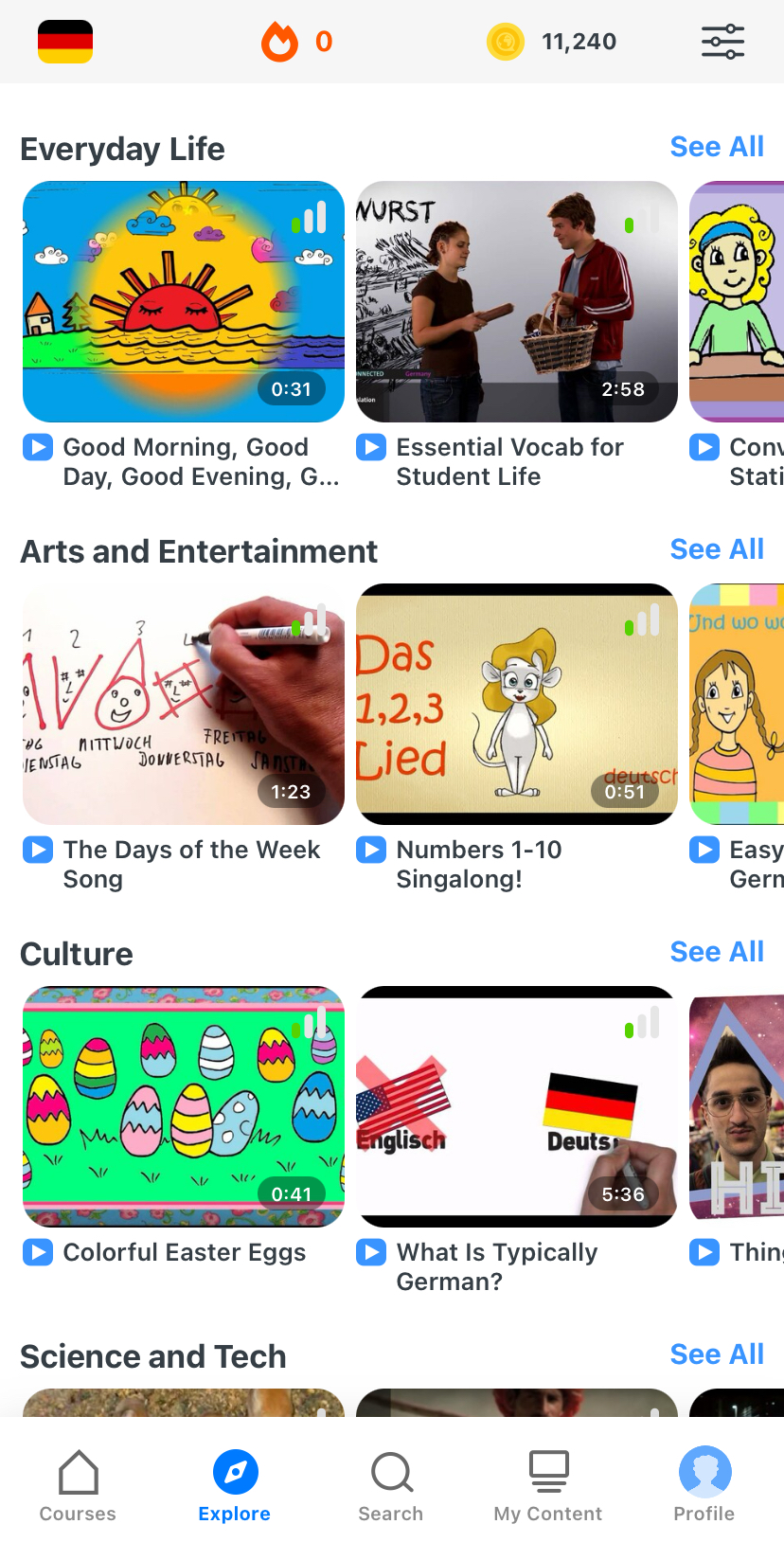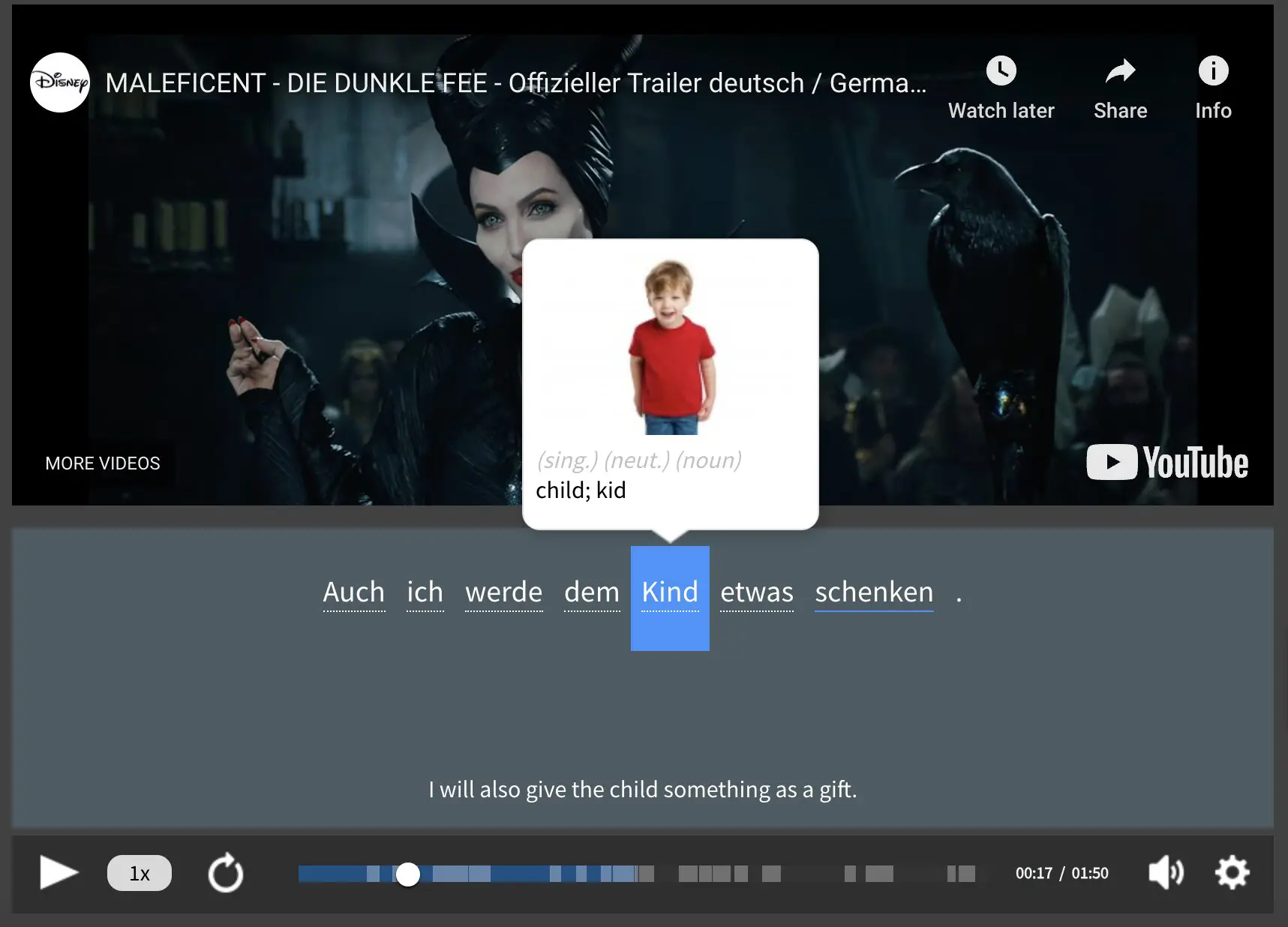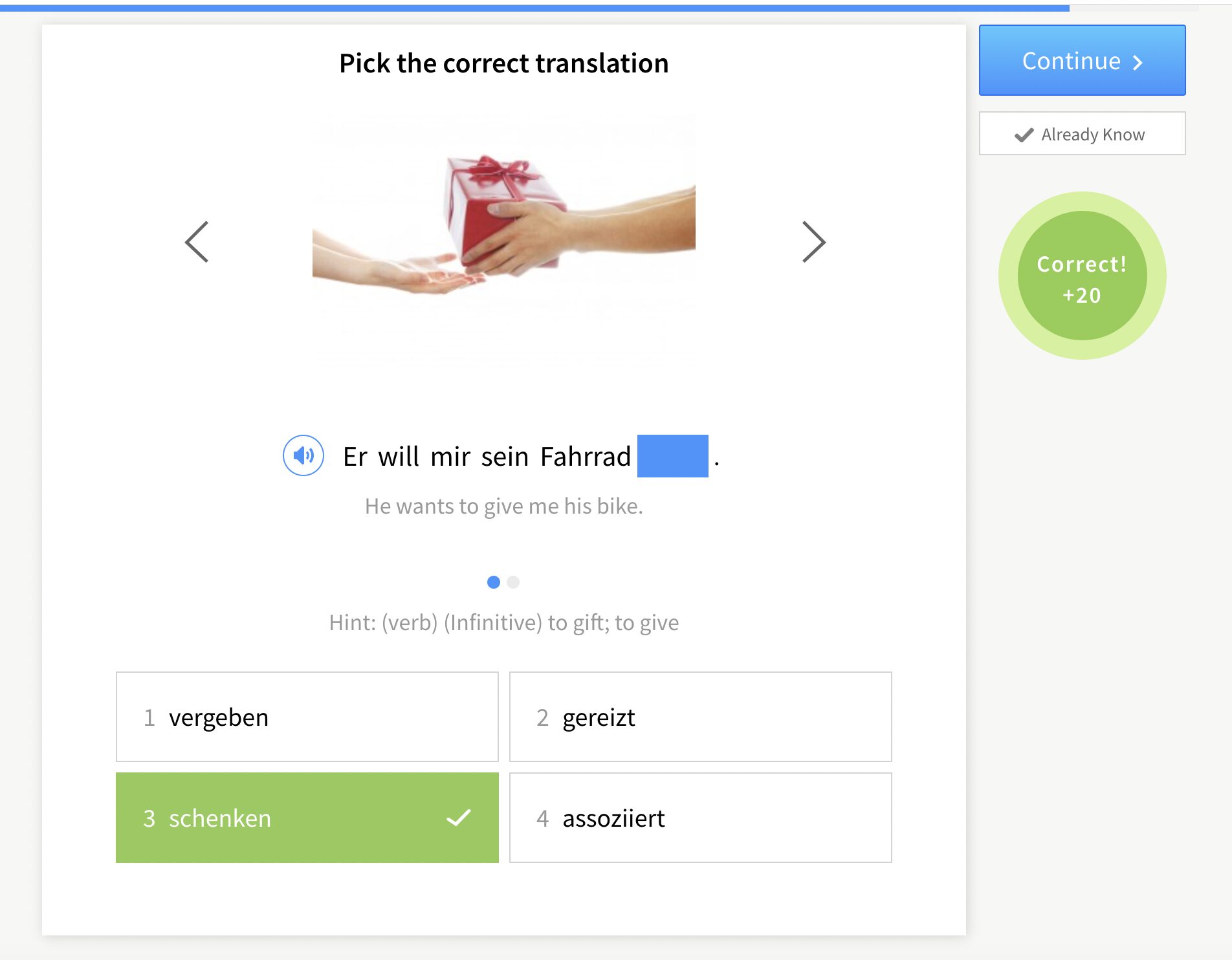Hobbies in German

Do you know how to speak about your hobbies in German? Because knowing how to talk about your hobby in two languages makes it even more interesting and you may even learn something new along the way.
Keep reading to learn more about the activities Germans do in their free time and how to talk about your own favorite things to do.
Download: This blog post is available as a convenient and portable PDF that you can take anywhere. Click here to get a copy. (Download)
Common German Verbs and Phrases to Talk About Hobbies
Here’s a very important word you’ll want to know for this post:
das Hobby — hobby
If you want the plural form, well that’s pretty easy:
die Hobbies — hobbies
To help you jump-start your vocabulary, let’s take a look at a few of key German hobby words.
Words for Popular Hobbies in German
Here are some popular hobbies and how you’d say them in German:
| singen | to sing | malen | to paint |
| Ski laufen | to ski | reisen | to travel |
| bowlen | to bowl | nähen | to sew |
| tanzen | to dance | zocken | to gamble |
| fischen | to fish | einkaufen | to shop |
| zeichnen | to draw | campen gehen | to camp |
| kochen | to cook | fotografieren | to photograph |
Additional Verbs for Talking About Hobbies
Obviously, the verbs you use to talk about your hobby are going to be specific to what you like to do. We recommend looking up the infinitive of your hobby in an online dictionary.
Some other verbs you might want to use together with a noun include:
| spielen | to play | schreiben | to write |
| aufführen | to perform | konkurrieren | to compete |
| sammeln | to collect | spielen | to play |
Poets might tell you:
Ich schreibe die Zweizeiler. — I write couplets.
Or what if your sister competes in an event where she’ll dance? You’d say:
Meine Schwester konkurriert im Tanzturnieren. — My sister competes in dance tournaments.
These are just a few ways to talk about the hobbies you love to do.
German Phrases for Describing Your Interests
Beyond describing what we actually like to do with action words, we can also talk about our hobbies in a more general way.
Here are a few German phrases you might consider memorizing to describe how you feel about your hobby:
Ich ___ gerne. — I like to [verb conjugated in simple present].
Ich mag ___. — I like [infinitive verb].
Ich ___ ___ gut. — I [verb conjugated in simple present] [noun] well.
Ich kann gut ___. — I’m good at [noun] [infinitive verb].
Here are some examples of the formulas above:
Ich tanze gerne. — I like to dance.
Ich mag kochen. — I like cooking.
Ich spiele Baseball gut. — I play baseball well.
Ich kann gut Deutsch sprechen. — I speak German well.
Now, you may be wondering about the difference between saying, for example, “I like painting pictures” and “I like to paint pictures.” In German, it’s really about what you’re trying to express.
For example, you’d say:
Ich mag Bilder malen. — I like painting pictures.
Ich male gerne Bilder. — I like to paint pictures.
Both sentences express that you like to paint pictures. However, subtle differences exist between the two: The first expresses that you like the act of painting pictures, while the second implies that you like painting pictures, rather than something else.
You could just as easily say:
Ich male gerne Landschaften. — I like to paint landscapes.
Like any language, it’s all about what you’re trying to express. You can get a better sense of how to speak more naturally by listening to German speakers talk to each other.
Popular German Hobbies
Though the German people cannot be stereotyped into specific pastimes or hobbies, there are quite a few popular activities that they share with the rest of the world.
Cooking and Drinking
Germans love to cook. They bake breads and, of course, cook up some sausage for their guests, family members and friends. Good food is something almost anyone can enjoy.
And to go with good food, Germans love their alcohol, specifically beer! Though, to be fair, for many, drinking is more of a lifestyle than a pastime.
Societal restrictions on drinking alcohol are much looser than you’d find in the States, so many times it’s more casual than anything else.
Foreign Flicks and Crime Series
Like most of us, Germans love their TV shows and movies.
Most Americans are exposed to few foreign films but in Germany, they’re just as prevalent as domestic films. This gives the German audience a wider cultural view than you might find among American films.
But, of course, both cultures—and likely many others—enjoy the thrills of dramatic TV shows. Germans love the TV show Tatort, meaning “crime scene.” There’s nothing as satistfyingly suspenseful as figuring out a murder mystery.
Traveling and Exploring
Germans also love to explore the world around them. Whether it’s weekend trips or excursions to countries close by and far away, Germans are explorers and adventurers.
Perhaps it’s related to the proximity of many other cultures or just simply a case of wanderlust (did you know that this is derived from a German word?), but the itch to see new places and experience new things engulfs the German people.
Sports and Fußball (Soccer)
But one of the biggest hobbies consuming die Deutschen (the Germans) is soccer, and by that we mean Fußball.
The Bundesliga Fantasy Manager is a soccer program similar to that of U.S. Fantasy Football leagues. If you ever want to dabble in the world of German soccer, this a great place to start.
The word Bundesliga translates to “federal league” in German. Mention it to probably any German you meet and they’ll know exactly what you’re talking about.
In fact, there’s an entire culture built around teams, games, coaches, players, etc. The culture is similar to that of American football and there are entire songs and chants surrounding German football.
If you’re interested in German soccer or the Bundesliga, check out these German sports terms or these German soccer terms to memorize and add to your vocabulary. Not only will you be participating in a large cultural German movement, but you’ll also be improving your language skills at the same time.
Why Learn How to Talk About Hobbies in German?
- Hobbies are a way for us to connect with the world and people around us. We can express ourselves and our interests in a common subject or field. Whether you join others in hiking famous mountains, visiting historic landmarks or even conquering the levels of a video game, hobbies allow you to connect with your peers, both in person and online.
- Speaking about your hobby in German also helps you increase your vocabulary. In fact, you might find that it’s easier to memorize vocabulary surrounding your hobby because well, it’s your hobby! You’ll learn new verbs, nouns and adjectives to describe what you’re doing and how you’re doing it.
- Finally, talking about your hobbies in German can be a great way to learn about—and even experiment with—other hobbies. As you improve your German fluency, you’ll delve further into the German way of life, hobbies, traditions and cultural aspects of Germany. After all, languages are never too far removed from the people who speak them!
Where to Practice Talking About Hobbies in German
At its core, practicing your German to talk about hobbies is really about pinpointing vocabulary terms for your particular hobby of choice. Here are some ways you can practice:
- We recommend this flashcard set from Quizlet for words you’ll likely use to talk about your hobby.
- If you like to play sports, you’d definitely find these flashcards from Quizlet to be useful.
- If you’ve already compiled a list of vocabulary words, you can use this free wordsearch creator. Sprinkle in a few words you’re struggling with that may not be hobby-related for extra practice. Just remember that you’ll have to use an “e” instead of an umlaut.
Hobbies bring people together. Now you can speak about your hobbies in German—and maybe you can discover some new German-speaking friends who share the same interests as you!
Download: This blog post is available as a convenient and portable PDF that you can take anywhere. Click here to get a copy. (Download)
And One More Thing...
If you're like me and enjoy learning German through movies and other media, you should check out FluentU. With FluentU, you can turn any subtitled content on YouTube or Netflix into an engaging language lesson.
I also love that FluentU has a huge library of videos picked specifically for German learners. No more searching for good content—it's all in one place!

One of my favorite features is the interactive captions. You can tap on any word to see an image, definition, and examples, which makes it so much easier to understand and remember.
And if you're worried about forgetting new words, FluentU has you covered. You'll complete fun exercises to reinforce vocabulary and be reminded when it’s time to review, so you actually retain what you’ve learned.
You can use FluentU on your computer or tablet, or download the app from the App Store or Google Play. Click here to take advantage of our current sale! (Expires at the end of this month.)







